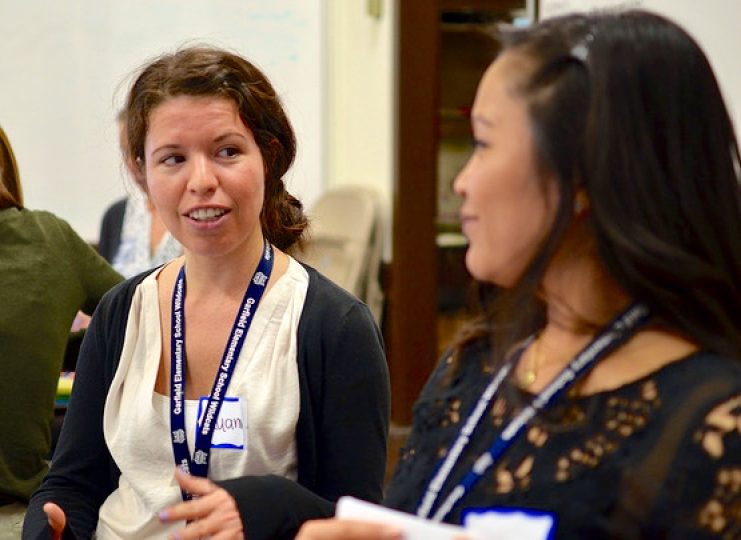
Core Value in Action: Honoring Learner Agency
At Lead by Learning, we believe that both teachers and students must be drivers of their own learning.
As an example of this core value in action, Albany High School English teacher Juliet Radford found power in allowing her students to take ownership over their learning.
Juliet knew that classroom discourse provided an incredible forum for students to explore their ideas, learn from their peers, and develop their thinking. But she always struggled with how to assess students’ speaking skills in classroom discussion and to assign a participation grade. For Juliet, it was an age old question of quantity vs. quality — does she just want to hear students say something or does she care about what they say? And what are the instructional strategies that encourage discussion and participation among students?
When Juliet first designed her AP Literature course, she decided to make participation worth 20% of student grades to encourage active, engaging discussion and mimic the grade-breakdown of a college-level course. Through her Lead by Learning inquiry work, Juliet invited students into her reflection process, asking them how this system felt.
One student reflected, “I feel like people are pressured to speak up to get credit and aren’t necessarily bringing up topics that truly interest us.”
Juliet decided to look to her students for guidance in reworking their classroom discussion practices.
In surveying them, she found that most students preferred a more free-form, less-structured discussion forum. As she allowed students the agency to help her design new discussion formats, she was thrilled to find more students speaking up each week. Throughout her year of inquiry, Juliet continued to invite students into the reflection and decision-making process, addressing issues and revising their plans together.
Her inquiry did not result in the grading system she set out to develop; however, she has emerged with a much broader, much richer concept of participation, including a recognition of the need for multiple modes of discourse in the classroom as entry points for diverse students to participate.
By inviting her students to take ownership over the design of their learning, Juliet deepened her understanding of her students’ needs and achieved powerful results. Read Juliet’s story in her own words.
This article was written in October 2017, Mills Teacher Scholars changed their name to Lead by Learning in the fall of 2020.
